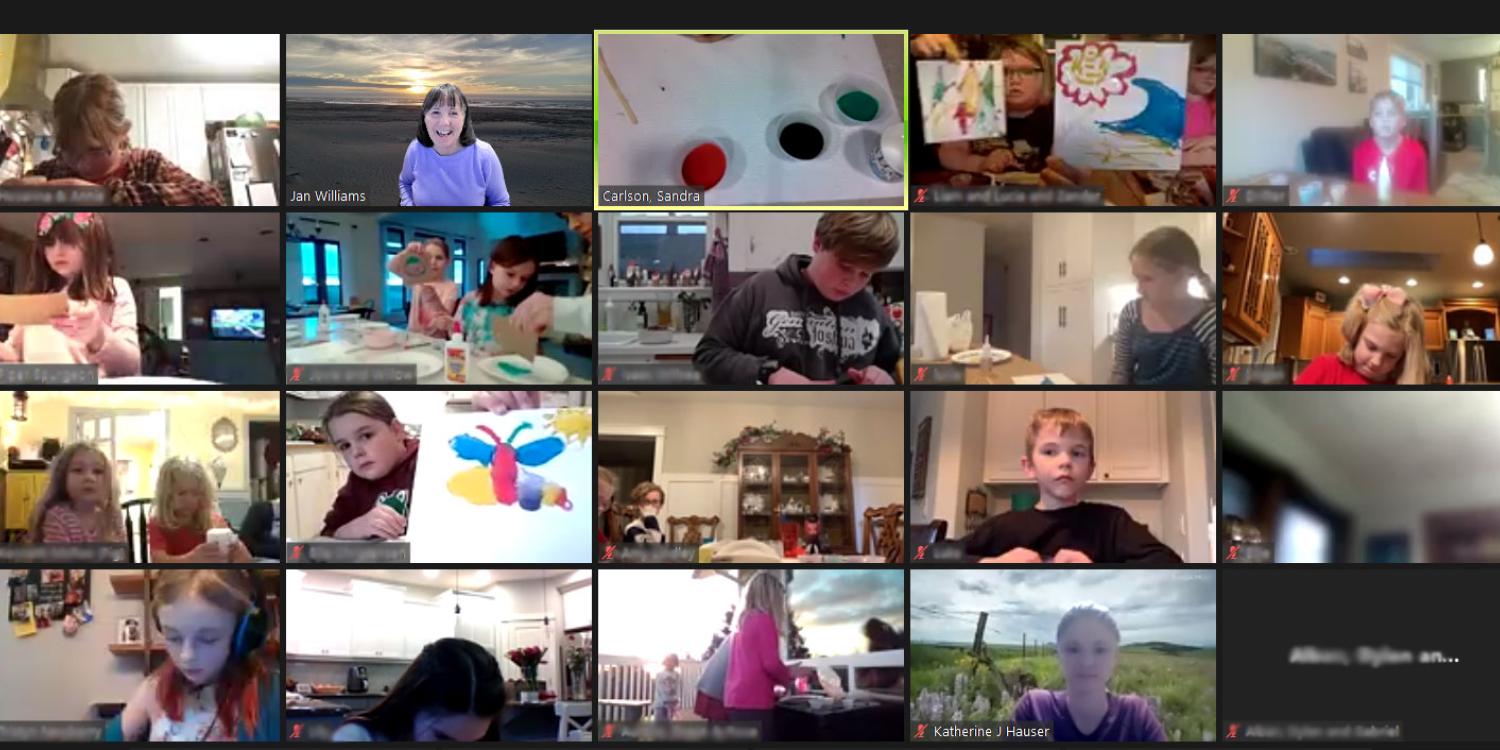
Oregon State University Extension Service’s 4-H Youth Development Program provides opportunities for youths to explore and discover their “spark” but there are some barriers that prevent youths and their families from being aware of all the projects 4-H has to offer. In Clackamas County prior to 2020, there had been a decreasing number of entries in 4-H static classes at the Clackamas County Fair. Static classes range from horticulture to art to food and nutrition.
Jan Williams, 4-H faculty in the county, made a concerted effort to reverse the trend. She created weekly virtual 4-H Project Exploration interactive workshops that offer hands-on activities for 4-H youths and volunteer leaders that teach skills and techniques in 4-H food, horticulture, STEM, art, and/or sewing projects.
A free class kit is provided each month to each pre-registered youth or leader. The kits contain most of the supplies and materials needed to complete the four projects for that month’s theme. Participants make an item or work on an activity specific to that month’s project. Examples include baking cookies, sewing together a pencil case, creating a mason bee house and creating an LED light circuit. Families participated fully in the online workshops, often having parents helping the youth with the activity.
The goal is to give each kid the vocabulary, techniques and tools to be successful and have a broader range of project knowledge and skills that they can continue to use in their daily lives.
4-H Project Exploration began in October 2020 and continues to this date. 4-H faculty in Clatsop and Baker counties collaborated with Williams to replicate the program for their 4-H’ers in January, February and March 2022. More than 270 youths participated in the online workshops in Clackamas, Clatsop and Baker counties in 2022.
In four of the workshops – fiber arts, science, engineering and robotics – all of the participants were new to the project area. Four other workshops – art and crafts, STEM, fiber and baking – had at least 90% participants who were new to the project area.
As a result, the number of 4-H static exhibit entries in the fair increased, including items that were made in the online workshops. More kids have engaged in projects and activities to which they might not have originally had access.